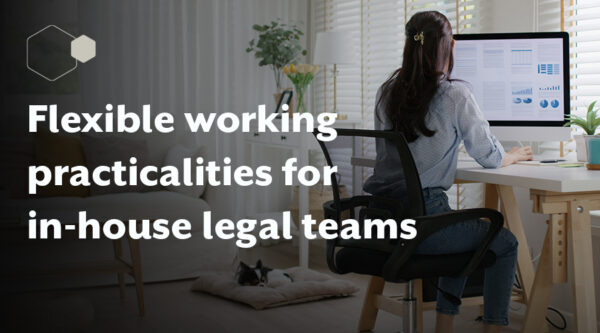
Looking Beyond Sponsorship – alternative routes under the Immigration Rules
12 November 2024

Organisations which rely on foreign nationals as part of their workforce will likely be familiar with sponsorship as the method to lawfully hire an individual from overseas to fill a particular role. Many of those same organisations will have applied for a Sponsor Licence. This is a prerequisite for the hiring of migrant labour, through which a Certificate of Sponsorship can be issued and assigned to an individual. At this point the individual can apply for a visa, most commonly a Skilled Worker visa, so that they may work for that particular organisation for a particular period of time.
The high number of Skilled Worker visas issued for this purpose can lead to a type of workplace thinking that sees sponsorship as the only means by which foreign nationals can work in the UK. Indeed, Skilled Worker sponsors account for the majority of employers at 84.95% as of 15 October 2024. However, there are a variety of other visas categories and types under the Immigration Rules – over 40 at last count – which exist alongside the sponsorship system, many of which have full work rights attached.
Benefits of looking beyond sponsorship
Looking beyond sponsorship at an organisational level and having an awareness of the wider immigration system can be beneficial for several reasons:
- It allows for a more robust and effective Right to Work system within the workplace.
- It can offer market advantage through widening the perceived recruitment pool.
- Hiring non-settled migrants in non-sponsored routes can give a competitive edge as restrictions which attach to sponsored work routes do not apply.
- An informed employer can have a constructive and compassionate advantage as well as having a negotiating tool when dealing with potential incoming and outgoing employees.
- The benefits or hiring from the non-sponsored pool can be financial since the cost of obtaining and maintaining a Sponsor Licence is significant.
Unexplored alternatives
Businesses should therefore be alive to potential alternatives to sponsorship through the hiring of migrants who are already in the UK with the right to work under a different type of permission. Many of these individuals will have a skill set which is not attached in any way to their visa. This could allow businesses more flexible, timely and cost-effective decision making as regards their workforce. A recruitment strategy which looks to local sources of labour would need to be intelligent and strategic, but the rewards could be well worth it.
Visa categories
So, what are the alternative visa categories? A selection of visas which could prove useful to businesses from the right to work perspective are highlighted below.
- Innovator Founder
Replacing the Start-up and Innovator routes, the Innovator Founder route was introduced in 2023. It is an important route intended to offer greater access to the UK economy for those with a genuine proposal for an innovative business and sufficient funds to deliver it and set up a business in the UK.
A key point to note about the Innovator Founder route is that the individual who wants to apply under this category must first obtain an endorsement from an endorsing body which backs their business idea. Endorsing bodies are independent from the government consisting of experts who have been approved by the Home Office and who sit together for the purpose of assessing a candidate’s business acumen. Unlike the old Innovator route there is no minimum funds requirement and, perhaps most importantly for this article, visa holders in this category can undertake secondary employment whilst also running their own business.
- Global Talent
The Global Talent route is a category open to individuals who are considered as leaders, or potential leaders in their field, previously known as Exceptional Talent or Exceptional Promise.
The Home Office have subcategorised Global Talent visas into areas of academia and research, arts and culture, and digital technology, each of which have their own independent endorsing bodies, which comprise a panel of experts in the relevant field and who assess applicants based on their own published criteria. This, alongside the great degree of subjectivity which applies when assessing a person under this route, make preparing the endorsement application an involved process. If the applicant is endorsed they must then make a separate application for the visa itself.
It is a particularly attractive route due to the status it affords the visa holder and the high degree of freedom it offers the visa holder to live and work in the UK, as well as to travel outside of the UK unbound by any minimum period of stay, although this will become relevant at the Indefinite Leave to Remain stage.
- Family and Private Life
Under the family route, applications can be made under the Immigration Rules on the basis that they are a dependent partner or child of a sponsoring British or settled person, or of a person holding permission under the EU Settlement Scheme, among a few others, subject to them meeting various requirements under the Rules.
Under the private life route, a visa may be issued to individuals who have spent a significant period of their life in the UK such that they are deemed to have established a private life here. An example is where a person has spent 20 years continuously in the UK, or a lesser period but where there are very significant obstacles to the applicant’s integration into the country where they would have to live if required to leave the UK.
Both the family and private life routes afford the holder full, unfettered work rights in the UK. Similarly, those with permission in the UK with refugee status, humanitarian protection or under the family reunion policy have full work rights, as do those who have been recognised as stateless or as persons deserving of leave to remain outside the Immigration Rules on human rights grounds.
- High Potential Individual
The High Potential Individual route is designed for individuals who have been awarded a degree in the last five years from a top-rated UK or international university, as recognised by the Home Office, which are published in a live list of universities on the government website. Entry into this visa category usually gives the holder permission for two years during which they have total freedom to work for any company in any sector or take up self-employment.
- Ancestry and Youth Mobility Scheme
There are also visa routes linked to a person’s nationality, such as the Ancestry and Youth Mobility Scheme (“YMS”) routes.
The Ancestry visa is for foreign nationals with ancestral links through British heritage, whereas the YMS offers visas for those from certain countries who are aged 18 to 30 or 18 to 35 depending on their country of nationality to live and work in the UK. Both offer routes to settlement.
- European Union Settlement Scheme
European nationals and their dependents who were resident in the UK before 31 December 2020, may hold Pre-Settled or Settled visas under the European Union Settlement Scheme (“EUSS”). This is a special category for EU nationals who had previously been exercising free movement rights in the UK and who are treated as ‘settled’ for immigration right to work purposes.
- Dependants of sponsored workers
There is a wide category of sponsored routes, such as the Skilled Worker or Global Business Mobility routes, in which the sponsored worker will be the main applicant. In most cases the main applicant will be able to sponsor their dependant partner or child(ren) where the necessary requirements are met.
All adult dependants have full work rights and, somewhat ironically, will have greater access to the UK job market than their sponsoring family member since they are not required to be sponsored to take employment. Where the main applicant’s sponsorship is coming to an end, they may be able to switch and become a dependant visa holder if their partner obtains sponsorship and becomes the main applicant.
The aforementioned visa categories all afford the individual visa holder the right to work without obtaining any further permission, or sponsorship, in the UK.
It should be noted that the flexibility afforded by the right to work condition attached to many non-sponsored visa routes cuts both ways, and any hire from this pool of candidates will not be tied to their employment as a condition of their immigration status as it is with sponsored migrants. Therefore, the element of business certainty which sponsorship offers means that it will, for many employers, remain the most attractive option.
Cast the net wide
There are a plethora of different immigration routes, far too many to discuss each one here, all with their own requirements and all circumstance-specific. Many offer the individual visa holder the right to work.
It is the intention of this article to highlight the different visa options for individuals and signal that sponsorship of a foreign national is not the only option available to businesses who wish to hire skilled labour. With specialist advice, you and your business may benefit from examining routes beyond sponsorship for the purposes of identifying and bringing individuals into the business.










